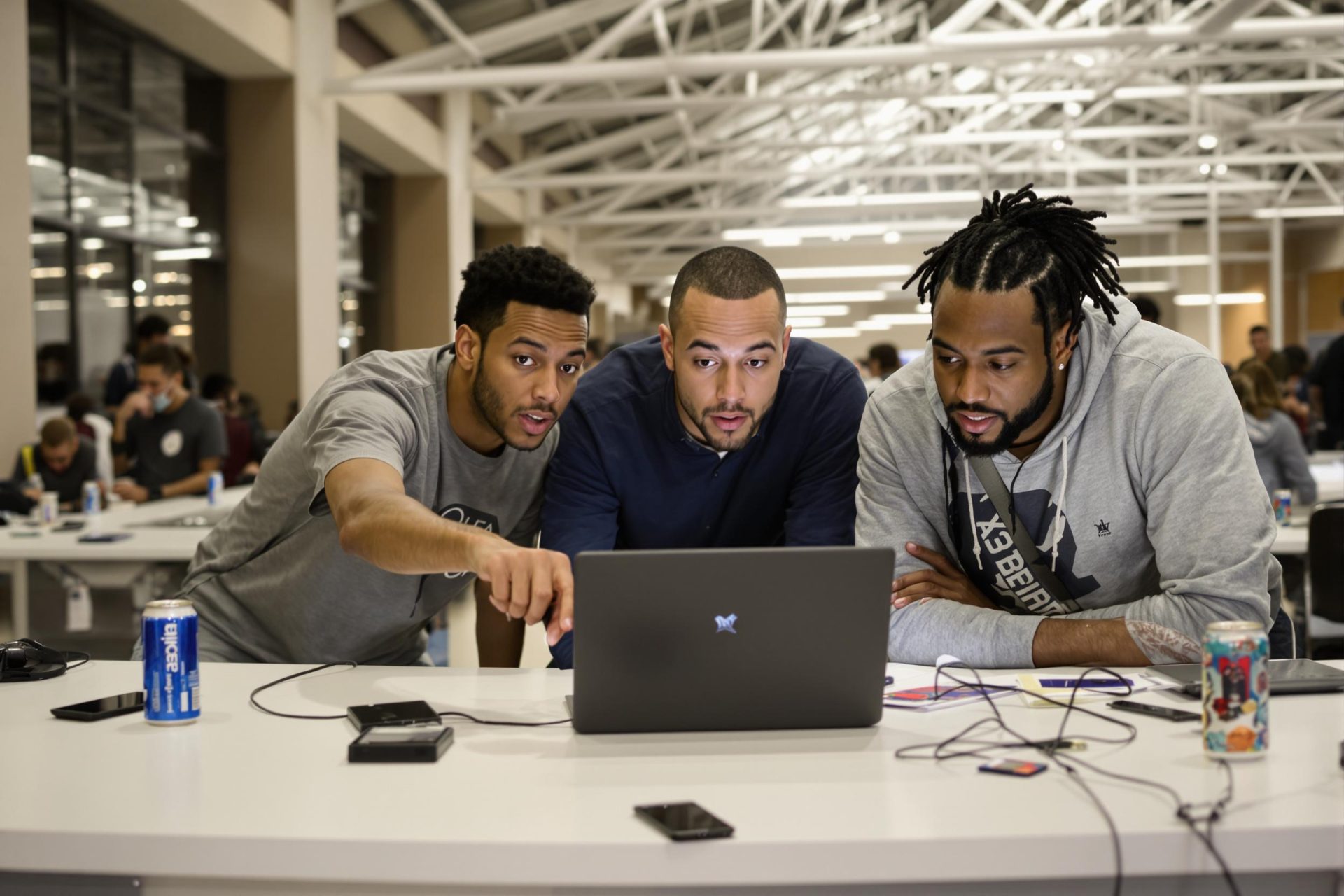Key Takeaways
- AI startups are increasingly using hackathons to discover and recruit new talent.
- These events offer a way for smaller tech companies to compete with industry giants for skilled individuals.
- Thanks to AI tools, more people from non-technical backgrounds are participating, diversifying the talent pool.
- Hackathons provide a real-world setting for companies to assess potential hires and for job seekers to connect with innovative startups.
AI startups are finding a valuable resource in hackathons to attract early-stage talent. These intense events, where participants collaborate to rapidly solve problems or build software, have long been a fixture in Silicon Valley for innovation and talent discovery.
Now, with the boom in artificial intelligence, hackathons are playing a crucial role in helping startups scout for AI specialists. These events typically run for 24 to 72 hours, bringing people together to develop a software product.
Hackathons saw a resurgence after a post-pandemic slowdown, largely fueled by the AI boom, according to Bela Wiertz, founder of Tech: Europe. He noted that since ChatGPT’s arrival in late 2022, more research labs and AI startups are organizing these events, even in cities with less established tech scenes, to gather top talent.
This trend is making hackathons “a viable way for hot AI startups to compete with Big Tech for a top talent pool,” Zoe Qin, vice president at Dawn Capital, told Business Insider. Large tech companies often have an edge in recruitment due to bigger budgets and compensation packages.
Hackathons help level that playing field. “Startups cannot spend as much money on LinkedIn ads or copy what Big Tech do in terms of prestige, but they can show that they’re more agile, and more approachable,” explained Benjamin Wolba, founder of European Defense Tech Hub.
Startups sometimes use these events to find early-career talent they might miss through traditional hiring. Angelo Giacco, an Imperial College London and ETH Zurich graduate, landed an engineering job at AI startup ElevenLabs just two weeks after participating in their hackathon. “I wouldn’t even have considered applying if I hadn’t gone to the hackathon,” he shared.
It’s not just junior roles either. Qin mentioned that startups sometimes pursue high-performing candidates or even their own engineers who excel at company-run hackathons. AI startups often seek entrepreneurial individuals who are eager to innovate, rather than those fitting a classic computer scientist profile.
For foundational AI labs, Wiertz points out that hackathons serve a dual purpose: hiring and promoting the adoption of their technology within the ecosystem. They look for solutions-oriented and customer-facing engineers to build upon their tech.
Interestingly, the barrier to entry for hackathons is lowering. More individuals from non-technical backgrounds are now using AI coding assistants to create technical products, broadening the diversity of participants.
Franziska Harzheim, a venture scout with a business analytics degree, found she could leverage her skills to build AI products in a team setting at hackathons. “It’s more like we look at everyone’s skill set, and according to that, we divide the tasks,” she said. “If you’re willing to learn something new on the spot, this is your space.”
These events also provide companies a valuable chance to observe potential candidates firsthand. “You get to see how people perform… in real life, not in an assessment center,” Wolba stated. It’s a time-effective way to gauge if someone is a good fit for the team.



